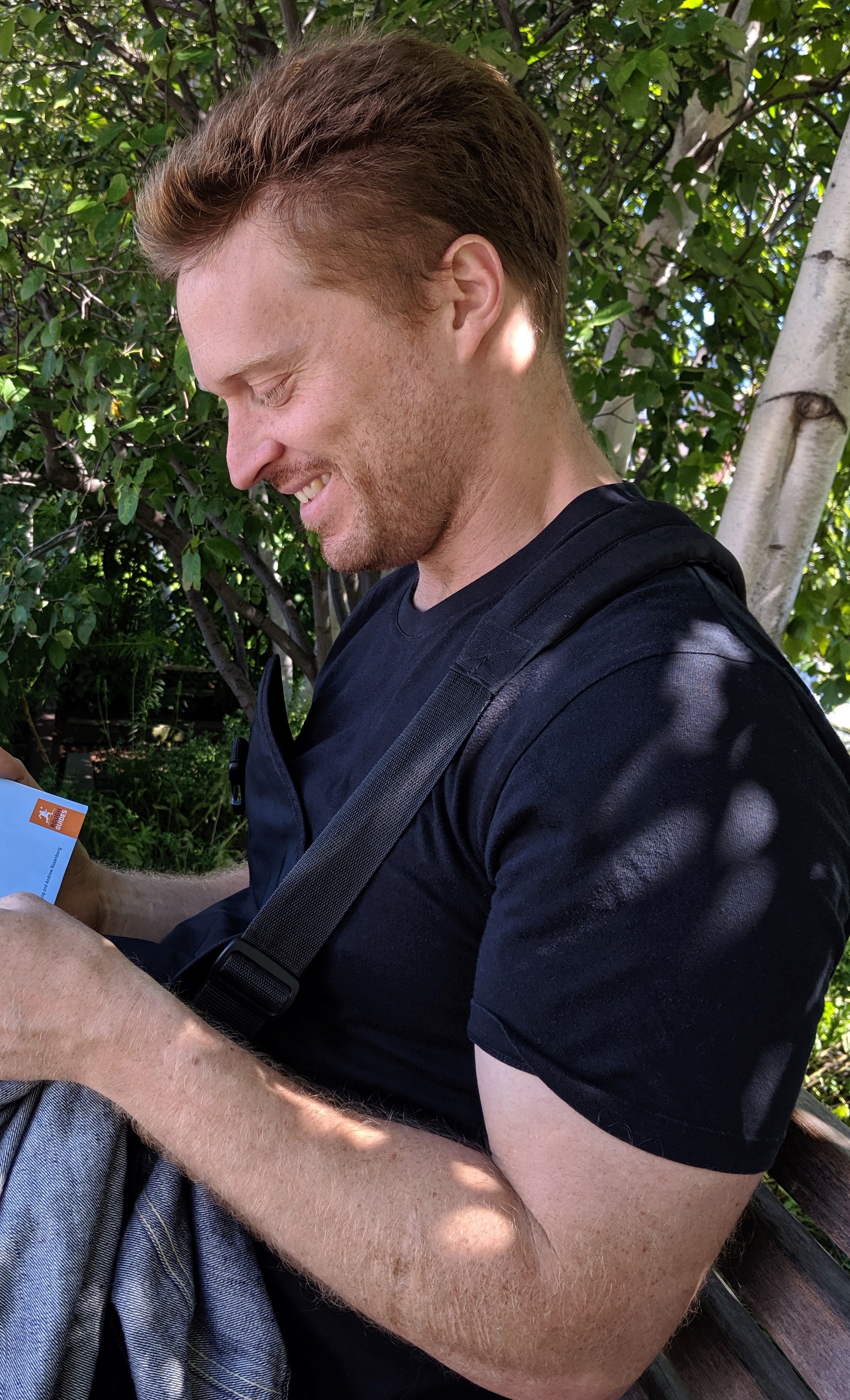Jonathan Turner
 How did you come to be an academic?
How did you come to be an academic?
My first degree at Oxford was in Philosophy and Russian. I did a Master’s in Russian literature, intending to go on to write a DPhil about Gogol, Chekhov and Samuel Beckett. But the lack of philosophical rigour in literary theory made me realize I wouldn’t feel comfortable in that field of academia.
After that, I started working at the Information Commissioner’s Office in my home town, Manchester. (The ICO is the regulatory body for data protection and freedom of information law.) I enjoyed law and moved to London to do my LLB part-time at Birkbeck while working in data protection and privacy compliance. By the time I finished it I wanted to stick with it, so I returned to Oxford to do the BCL, and carried on from there.
The advantage of this circuitous route is that I know for sure that this is what I want to do. The downside is that I have ten years fewer than most people in which to do it!
What is your research about? What arguments or views are central to your research?
Some of my work is straightforwardly moral and political philosophy, with little or no explicit connection with law. I’m interested especially in authority, legitimacy, democracy, and justice, and in the relationships between them.
I also work in the philosophical foundations of criminal and constitutional law, often with a link to the above ideas. At the moment I’m thinking about the role that public opinion might play in legitimizing the labels we give to offences, and about what it takes for democratic processes to confer a specific ‘mandate’ on government policies or actions.
All my work is underwritten by a belief in (and defence of) the continuity of normative theorizing. I don’t think there are any specifically political values, just moral values as applied to and manifested in the complex and difficult circumstances of politics.
What are some of the most important claims you have argued for? And some of your central views in, or contributions to, jurisprudence?
I’ve argued at length for the continuity of moral and political philosophy, against various camps – including political realists, Kantians, and Rawlsian political liberals – who claim that political philosophy is in some sense autonomous. Most of this debate is among political philosophers, but it often bleeds through (sometimes unrecognized or underplayed) into legal theory, especially the theory of criminal and constitutional law.
What do you find most exciting about your research?
The exciting parts of research are, first, reading yourself into an area of literature and coming to understand how all the problems and proposed solutions fit together and, secondly, the initial rush of writing when you find you have something worthwhile to say about a topic and the ideas flow freely onto the page. The next stage is not so exciting!
What are some big trends in Jurisprudence these days and how do you feel about them?
The central debate in general jurisprudence is still the status of legal positivism. This can’t be uncontroversially defined (in fact, how to define it is part of the debate) but it can be understood as the claim that social rather than moral fact determine the content of the law. I notice some people in the field observing casually that positivism has by now won the day, and others endorsing the new ascendancy of anti-positivist thought. So little seems to be settled there. But it’s encouraging to see the arguments increasingly classified as ‘positivist’ and ‘anti-positivist’ (even if we still struggle to agree about what those labels mean), rather than as part of a ‘Hart vs Dworkin’ contest. There is more focus on defending philosophical positions, and less on attributing them to canonical figures, and that is a good thing in my book.
Another welcome development is the tendency of writers to be more explicit about their metaethical positions (whether there are moral facts, how best to understand our use of mora language, and so on), and to confront the metaethical implications and assumptions of jurisprudential arguments. A further beneficial step in this direction would be for work in the philosophy of specific areas of law (crime, tort, etc.) to examine more closely its connections with foundational questions in normative moral and political philosophy.
What would you like to see change in academia (at large or your field of research)?
I’d like to see more recognition of the teaching role of academics, both by institutions and by academics themselves.
What are some of your non-academic interests, pursuits, or hobbies?
Having three young children doesn’t leave me a lot of leisure time, but the things I try to fit in when I can are: discovering and listening to music, choral singing (I’m a tenor), powerlifting (injuries permitting), and languages.
If you had to pick a desert island book (academic or not), music album, or film, which one would it be?
Book: Complete plays of Anton Chekhov
Album: Kings of Convenience, Quiet Is The New Loud
Film: Lost in Translation (great film, but also to shoehorn some more music in)
This interview was conducted in August 2019 by Carolina Flores (St. Hugh's, MMathPhil, 2016) who is a philosopher working in epistemology and social philosophy.

